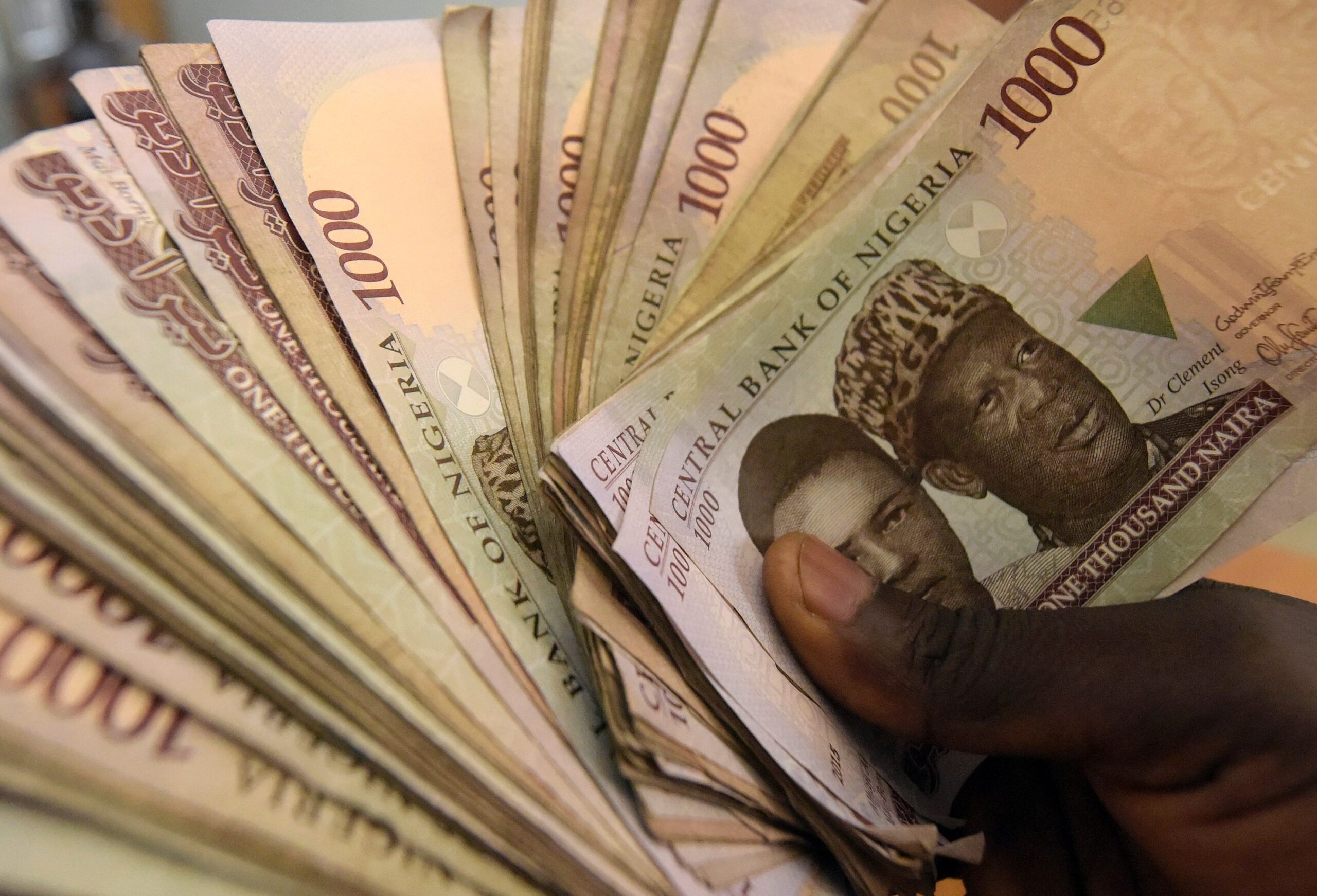
Nigerian election hopefuls to pay high fees to run for office

Nigeria’s central bank governor, Godwin Emefiele, on January 26 dismissed calls to devalue the naira in his monetary policy committee statement. Instead he chose to continue propping up the currency at 197-199 naira to the dollar and maintain foreign-exchange restrictions. As a result, the naira on the black market is hovering around a record low of 305, fuelling complaints from domestic and foreign businesses who can’t access dollars required for imports. / AFP / PIUS UTOMI EKPEI (Photo credit should read PIUS UTOMI EKPEI/AFP/Getty Images)
Nigeria’s main political parties have asked aspiring political candidates hopefuls today for the chance to vie for a political seat in year’s general election. A move which has been criticised as favouring the rich and well-connected.
As the nation prepares to go to the polls in February next year, the APC (The All Progressives Congress) is demanding an eye-watering 45 million naira ($125 500) per presidential primary candidate,women and the disabledhave been offered a offered a half-price discount.
Individuals wanting to be selected to run for a governorship post have to pay 22.5 million($ 62,500) naira, up from 10 million naira last time round.
The PDP(Peoples Democratic Party fees for the presidential candidate forms are 12 million naira and 11 million Naira for a chance to stand for governorship .
Significant sums in a country with a population of 180 million half live in abject poverty
The Not-Too-Young-to-Run organisation, which successfully campaigned for a reduction in the lower age limit for elected representatives, said the fees were “exorbitant” and would disqualify potential candidates.
It claimed the main parties had reneged on a promise to cap the cost of nomination forms for all elected posts.
Debo Adeniran, of the Centre for Anti-Corruption and Open Leadership lobby group, said the high costs was an example of how the two main parties had “monetised the political environment”.
“The system favoured the wealthy and fostered cronyism and corruption, as sponsors who often pay for a candidate’s forms expect pay-back once they are in power”, he added.






